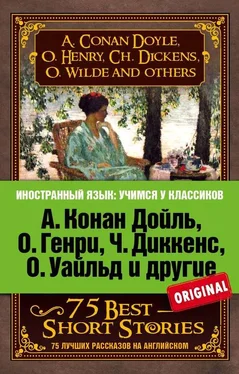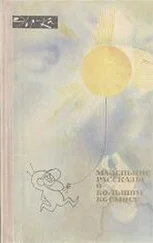And so the house came to be haunted by the unspoken phrase: There must be more money! There must be more money! The children could hear it all the time, though nobody said it aloud. They heard it at Christmas, when the expensive and splendid toys filled the nursery. Behind the shining modern rocking-horse, behind the smart doll’s-house, a voice would start whispering: ‘There must be more money! There must be more money!’ And the children would stop playing, to listen for a moment. They would look into each other’s eyes, to see if they had all heard. And each one saw in the eyes of the other two that they too had heard. ‘There must be more money! There must be more money!’
It came whispering from the springs of the still-swaying rocking-horse, and even the horse, bending his wooden, champing head, heard it. The big doll, sitting so pink and smirking in her new pram, could hear it quite plainly, and seemed to be smirking all the more self-consciously because of it. The foolish puppy, too, that took the place of the teddy-bear, he was looking so extraordinarily foolish for no other reason but that he heard the secret whisper all over the house: ‘There must be more money.’
Yet nobody ever said it aloud. The whisper was everywhere, and therefore no one spoke it. Just as no one ever says: ‘We are breathing!’ in spite of the fact that breath is coming and going all the time.
‘Mother!’ said the boy Paul one day. ‘Why don’t we keep a car of our own? Why do we always use uncle’s, or else a taxi?’
‘Because we’re the poor members of the family,’ said the mother.
‘But why are we, mother?’
‘Well – I suppose,’ she said slowly and bitterly, ‘it’s because your father has no luck.’
The boy was silent for some time.
‘Is luck money, mother?’ he asked, rather timidly.
‘No, Paul! Not quite. It’s what causes you to have money.’
‘Oh!’ said Paul vaguely. ‘I thought when Uncle Oscar said filthy lucker, it meant money.’
‘ Filthy lucre does mean money,’ said the mother. ‘But it’s lucre, not luck.’
‘Oh!’ said the boy. ‘Then what is luck, mother?’
‘It’s what causes you to have money. If you’re lucky you have money. That’s why it’s better to be born lucky than rich. If you’re rich, you may lose your money. But if you’re lucky, you will always get more money.’
‘Oh! Will you! And is father not lucky?’
‘Very unlucky, I should say,’ she said bitterly.
The boy watched her with unsure eyes.
‘Why?’ he asked.
‘I don’t know. Nobody ever knows why one person is lucky and another unlucky.’
‘Don’t they? Nobody at all? Does nobody know?’
‘Perhaps God! But He never tells.’
‘He ought to, then. And aren’t you lucky either, mother?’
‘I can’t be, if I married an unlucky husband.’
‘But by yourself, aren’t you?’
‘I used to think I was, before I married. Now I think I am very unlucky indeed.’
‘Why?’
‘Well – never mind! Perhaps I’m not really,’ she said.
The child looked at her, to see if she meant it. But he saw, by the lines of her mouth, that she was only trying to hide something from him.
‘Well, anyhow,’ he said stoutly, ‘I’m a lucky person.’
‘Why?’ said his mother, with a sudden laugh.
He stared at her. He didn’t even know why he had said it.
‘God told me,’ he asserted, brazening it out.
‘I hope He did, dear!’ she said, again with a laugh, but rather bitter.
‘He did, mother!’
‘Excellent!’ said the mother, using one of her husband’s exclamations.
The boy saw she did not believe him; or rather, that she paid no attention to his assertion. This angered him somewhere, and made him want to compel her attention.
He went off by himself, vaguely, in a childish way, seeking for the clue to ‘luck’. Absorbed, taking no heed of other people, he went about with a sort of stealth, seeking inwardly for luck. He wanted luck, he wanted it, he wanted it. When the two girls were playing dolls, in the nursery, he would sit on his big rocking-horse, charging madly into space, with a frenzy that made the little girls peer at him uneasily. Wildly the horse careered, the waving dark hair of the boy tossed, his eyes had a strange glare in them. The little girls dared not speak to him.
When he had ridden to the end of his mad little journey, he climbed down and stood in front of his rocking-horse, staring fixedly into its lowered face. Its red mouth was slightly open, its big eye was wide and glassy bright.
‘Now!’ he would silently command the snorting steed. ‘Now take me to where there is luck! Now take me!’
And he would slash the horse on the neck with the little whip he had asked Uncle Oscar for. He knew the horse could take him to where there was luck, if only he forced it. So he would mount again, and start on his furious ride, hoping at last to get there. He knew he could get there.
‘You’ll break your horse, Paul!’ said the nurse.
‘He’s always riding like that! I wish he’d leave off!’ said his elder sister Joan.
But he only glared down on them in silence. Nurse gave him up. She could make nothing of him. Anyhow he was growing beyond her.
One day his mother and his Uncle Oscar came in when he was on one of his furious rides. He did not speak to them.
‘Hallo! you young jockey! Riding a winner?’ said his uncle.
‘Aren’t you growing too big for a rocking-horse? You’re not a very little boy any longer, you know,’ said his mother.
But Paul only gave a blue glare from his big, rather close-set eyes. He would speak to nobody when he was in full tilt. His mother watched him with an anxious expression on her face.
At last he suddenly stopped forcing his horse into the mechanical gallop, and slid down.
‘Well, I got there!’ he announced fiercely, his blue eyes still flaring, and his sturdy long legs straddling apart.
‘Where did you get to?’ asked his mother.
‘Where I wanted to go to,’ he flared back at her.
‘That’s right, son!’ said Uncle Oscar. ‘Don’t you stop till you get there. What’s the horse’s name?’
‘He doesn’t have a name,’ said the boy.
‘Gets on without all right?’ asked the uncle.
‘Well, he has different names. He was called Sansovino last week.’
‘Sansovino, eh? Won the Ascot [335]. How did you know his name?’
‘He always talks about horse-races with Bassett,’ said Joan.
The uncle was delighted to find that his small nephew was posted with all the racing news. Bassett, the young gardener who had been wounded in the left foot in the war, and had got his present job through Oscar Cresswell, whose batman he had been, was a perfect blade of the ‘turf.’ He lived in the racing events, and the small boy lived with him.
Oscar Cresswell got it all from Bassett.
‘Master Paul comes and asks me, so I can’t do more than tell him, sir,’ said Bassett, his face terribly serious, as if he were speaking of religious matters.
‘And does he ever put anything on a horse he fancies?’
‘Well – I don’t want to give him away – he’s a young sport, a fine sport, sir. Would you mind asking him himself? He sort of takes a pleasure in it, and perhaps he’d feel I was giving him away, sir, if you don’t mind.’
Bassett was serious as a church.
The uncle went back to his nephew, and took him off for a ride in the car.
‘Say, Paul, old man, do you ever put anything on a horse?’ the uncle asked.
The boy watched the handsome man closely.
‘Why, do you think I oughtn’t to?’ he parried.
Читать дальше
Конец ознакомительного отрывка
Купить книгу












